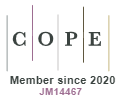Knowledge-based urban development as a strategy to promote smart and sustainable cities
DOI:
https://doi.org/10.5585/geas.v9i1.18740Keywords:
Smart and sustainable cities, Knowledge-based urban development, Sustainable urban development, Knowledge economy, Knowledge-based development.Abstract
In the knowledge era, rapid technological progress, especially in information and communication technologies, is seen as the main ally to respond to the growing urban environmental and socioeconomic crises. In this context, smart and sustainable cities are those that apply technology and innovation to improve the quality of life of their citizens and the efficiency of services, aiming at sustainable urban development. In practice, however, several challenges are posed to cities that seek to become smart and sustainable. To bring together the intelligence and sustainability dimensions, cities need locally-designed solutions, as well as integrated and balanced strategic urban planning. A strategic framework that can respond to these requirements is Knowledge-Based Urban Development (KBUD), which articulates four knowledge-based development domains (economic, social, spatial and institutional) for a long-term process of urban transformation, in the context of the new knowledge economy and global competitiveness. Through a literature review, this article aims to present and discuss the main conceptual and application aspects of KBUD as a strategic approach to the promotion of smart and sustainable cities. The results indicate that KBUD can contribute by offering a multidimensional and integrated approach to strategic urban planning that includes the implementation of urban technologies, developed by endogenous innovation processes, for a truly smart and sustainable urban development.Downloads
References
Ahvenniemi, H., Huovila, A., Pinto-Seppä, I., & Airaksinen, M. (2017). What are the differences between sustainable and smart cities?. Cities, 60, 234-245.
Albino, V., Berardi, U., & Dangelico, R. M. (2015). Smart cities: Definitions, dimensions, performance, and initiatives. Journal of urban technology, 22(1), 3-21.
Bugliarello, G. (2004). Urban knowledge parks, knowledge cities and urban sustainability. International Journal of Technology Management, 28(3-6), 388-394.
Bugliarello, G. (2006). Urban sustainability: Dilemmas, challenges and paradigms. Technology in Society, 28(1-2), 19-26.
Caragliu, A., Del Bo, C., & Nijkamp, P. (2011). Smart cities in Europe. Journal of urban technology, 18(2), 65-82.
Carrillo, F. J. (2002). Capital systems: implications for a global knowledge agenda. Journal of Knowledge Management, 6(4), 379-399.
Carrillo, F. J. (2004). Capital cities: A taxonomy of capital accounts for knowledge cities. Journal of Knowledge Management, 8(5), 28–46.
Carrillo, F. J. (2014). What 'knowledge-based' stands for? A position paper. International Journal of Knowledge-Based Development, 5(4), 402–421.
Carrillo, F. J., Yigitcanlar, T., García, B., & Lönnqvist, A. (2014). Knowledge and the city: Concepts, applications and trends of knowledge-based urban development. Routledge.
Chang, D. L., Sabatini-Marques, J., Da Costa, E. M., Selig, P. M., & Yigitcanlar, T. (2018). Knowledge-based, smart and sustainable cities: a provocation for a conceptual framework. Journal of Open Innovation: Technology, Market, and Complexity, 4(1), 5.
Cooke, P., & Leydesdorff, L. (2006). Regional development in the knowledge-based economy: The construction of advantage. The journal of technology Transfer, 31(1), 5-15.
Cortese, T. T. P., Coutinho, S. V., Vasconcellos, M. D. P., & Buckeridge, M. S. (2019). Tecnologias e sustentabilidade nas cidades. Estudos Avançados, 33(97), 137-150.
Costa, H. S. M. (2000) Desenvolvimento urbano sustentável: uma contradição de termos?. Revista brasileira de estudos urbanos e regionais, (2), 55-71.
Creswell, J. W. (2010) Projeto de Pesquisa: métodos qualitativo, quantitativo e misto. (3rd Ed.). Artmed. Porto Alegre.
Dhingra, M., & Chattopadhyay, S. (2016). Advancing smartness of traditional settlements-case analysis of Indian and Arab old cities. International Journal of Sustainable Built Environment, 5(2), 549-563.
Dvir, R., & Pasher, E. (2004). Innovation engines for knowledge cities: an innovation ecology perspective. Journal of knowledge management, 8(5), 16-27.
Edvardsson, I. R., Yigitcanlar, T., & Pancholi, S. (2016). Knowledge city research and practice under the microscope: a review of empirical findings. Knowledge Management Research & Practice, 14(4), 537-564.
Ergazakis, K., Metaxiotis, K., & Psarras, J. (2004). Towards knowledge cities: conceptual analysis and success stories. Journal of knowledge management, 8(5), 5-15.
Etzkowitz, H., & Zhou, C. (2017). Hélice Tríplice: inovação e empreendedorismo universidade-indústria-governo. Estudos avançados, 31(90), 23-48.
Fachinelli, A. C., Carrillo, F. J., & D'Arisbo, A. (2014). Capital system, creative economy and knowledge city transformation: Insights from Bento Gonçalves, Brazil. Expert Systems with Applications, 41(12), 5614–5624.
Fachinelli, A. C., D’Arrigo, F. P., & Giacomello, C. P. (2015). Open data for sustainability performance assessment in Brazilian cities. Australian Journal of Basic and Applied Sciences, 9(20), 32-38.
Fachinelli, A. C., D'Arrigo, F. P., & Breunig, K. J. (2018). The value context in knowledge-based development: revealing the context factors in the development of Southern Brazils Vale dos Vinhedos region. Knowledge Management Research & Practice, 16(1), 32-41.
Florida, R. (2002). The economic geography of talent. Annals of the Association of American geographers, 92(4), 743-755.
Harzing, A. W., & Alakangas, S. (2016). Google Scholar, Scopus and the Web of Science: a longitudinal and cross-disciplinary comparison. Scientometrics, 106(2), 787-804.
Ivaldi, E., Penco, L., Isola, G., & Musso, E. (2020). Smart Sustainable Cities and the Urban Knowledge-Based Economy: A NUTS3 Level Analysis. Social Indicators Research, 150(1), 45–72.
Knight, R. (1995). Knowledge-based development: Policy and planning implications for cities. Urban Studies, 32(2), 225–260.
Leite, C., Awad, J. C. M. (2012). Cidades sustentáveis, cidades inteligentes: desenvolvimento sustentável num planeta urbano. Bookman. Porto Alegre.
Lönnqvist, A., Käpylä, J., Salonius, H., & Yigitcanlar, T. (2014). Knowledge that matters: Identifying regional knowledge assets of the Tampere region. European Planning Studies, 22(10), 2011-2029.
Maiello, A., Battaglia, M., Daddi, T., & Frey, M. (2011). Urban sustainability and knowledge: Theoretical heterogeneity and the need of a transdisciplinary framework. A tale of four towns. Futures, 43(10), 1164-1174.
Mongeon, P., & Paul-Hus, A. (2016). The journal coverage of Web of Science and Scopus: a comparative analysis. Scientometrics, 106(1), 213-228.
Nam, T., & Pardo, T. A. (2011). Conceptualizing smart city with dimensions of technology, people, and institutions. In Proceedings of the 12th annual international digital government research conference: digital government innovation in challenging times (pp. 282-291). Association for Computing Machinery. https://doi.org/10.1145/2037556.2037602
Neirotti, P., De Marco, A., Cagliano, A. C., Mangano, G., & Scorrano, F. (2014). Current trends in Smart City initiatives: Some stylised facts. Cities, 38, 25-36.
Phillis, Y. A., Kouikoglou, V. S., & Verdugo, C. (2017). Urban sustainability assessment and ranking of cities. Computers, Environment and Urban Systems, 64, 254-265.
Sabatini-Marques, J., Yigitcanlar, T., Schreiner, T., Wittmann, T., Sotto, D., & Inkinen, T. (2020). Strategizing Smart, Sustainable, and Knowledge-Based Development of Cities: Insights from Florianópolis, Brazil. Sustainability, 12(21), 8859.
Spinosa, L. M., Krama, M. R., & Hardt, C. (2018). Desenvolvimento urbano baseado em conhecimento e ecossistemas de inovação urbanos: uma análise em quatro cidades brasileiras. Eure (Santiago), 44(131), 193-214.
Trindade, E. P., Hinnig, M. P. F., da Costa, E. M., Sabatini-Marques, J., Bastos, R. C., & Yigitcanlar, T. (2017). Sustainable development of smart cities: A systematic review of the literature. Journal of Open Innovation: Technology, Market, and Complexity, 3(3), 11.
Vojnovic, I. (2014). Urban sustainability: Research, politics, policy and practice. Cities, 41, S30–S44.
Yigitcanlar, T. (2009). Planning for knowledge-based urban development: global perspectives. Journal of Knowledge Management, 13(5), 228-242.
Yigitcanlar, T. (2011). Position paper: Redefining knowledge-based urban development. International Journal of Knowledge-Based Development, 2(4), 340–356.
Yigitcanlar, T. (2014a). Innovating urban policymaking and planning mechanisms to deliver knowledge-based agendas: a methodological approach. International Journal of Knowledge-Based Development, 5(3), 253-270.
Yigitcanlar, T. (2014b). Position paper: Benchmarking the performance of global and emerging knowledge cities. Expert Systems with Applications, 41(12), 5549–5559.
Yigitcanlar, T. (2016). Technology and the city: systems, applications and implications. Routledge. New York.
Yigitcanlar, T., & Kamruzzaman, M. (2015). Planning, Development and Management of Sustainable Cities: A Commentary from the Guest Editors. Sustainability, 7(11), 14677–14688.
Yigitcanlar, T., & Kamruzzaman, M. (2018). Does smart city policy lead to sustainability of cities?. Land Use Policy, 73, 49-58.
Yigitcanlar, T., & Lönnqvist, A. (2013). Benchmarking knowledge-based urban development performance: Results from the international comparison of Helsinki. Cities, 31, 357-369.
Yigitcanlar, T., Edvardsson, I. R., Johannesson, H., Kamruzzaman, M., Ioppolo, G., & Pancholi, S. (2017). Knowledge-based development dynamics in less favoured regions: insights from Australian and Icelandic university towns. European Planning Studies, 25(12), 2272-2292.
Yigitcanlar, T., Kamruzzaman, M., Foth, M., Sabatini-Marques, J., da Costa, E., & Ioppolo, G. (2019). Can cities become smart without being sustainable? A systematic review of the literature. Sustainable cities and society, 45, 348-365.
Yigitcanlar, T., Lönnqvist, A., & Salonius, H. (2014). Analysis of a city-region from the knowledge perspective: Tampere, Finland. VINE, 44(3), 445-466.
Yigitcanlar, T., O'Connor, K., & Westerman, C. (2008). The making of knowledge cities: Melbourne's knowledge-based urban development experience. Cities, 25(2), 63-72.
Yigitcanlar, T., Sabatini-Marques, J., Lorenzi, C., Bernardinetti, N., Schreiner, T., Fachinelli, A., & Wittmann, T. (2018). Towards smart Florianópolis: What does it take to transform a tourist island into an innovation capital?. Energies, 11(12), 3265.
Yigitcanlar, T., Velibeyoglu, K., & Martinez-Fernandez, C. (2008). Rising knowledge cities: the role of urban knowledge precincts. Journal of knowledge management, 12(5), 8-20.
Downloads
Published
How to Cite
Issue
Section
License
Copyright (c) 2020 Larissa Diana Michelam, Tatiana Tucunduva Philippi Cortese, Tan Yigitcanlar, Leonardo Vils

This work is licensed under a Creative Commons Attribution-NonCommercial-ShareAlike 4.0 International License.
- Abstract 2195
- PDF 881
- PDF (Português (Brasil)) 900









